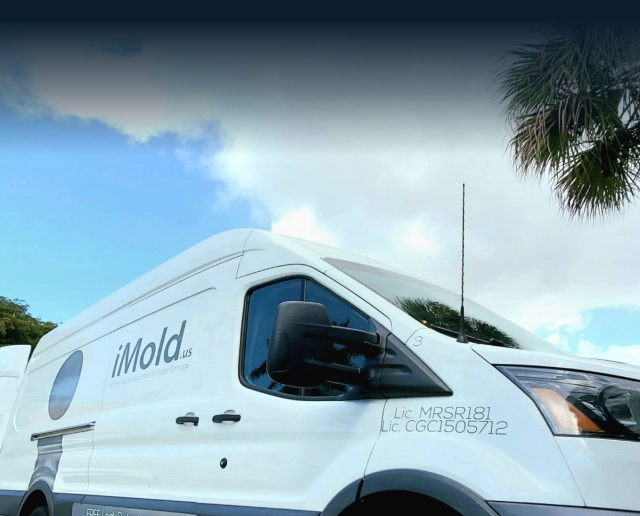Symptoms of Mold Exposure in Children
It’s a well-known fact that mold exposure causes adverse health effects. If you find mold in your home, you’re probably concerned about how that affects your children, pets, and yourself. The symptoms of mold exposure in children are typically the same as those of adults. However, since children are still growing with developing immune systems, those effects tend to be more severe. Since mold is often hidden in areas of your home that you don’t even know about, it’s essential to know what types of symptoms to look for in your children and family.
Why Does Mold Cause Negative Health Effects?
The main reason that mold causes health problems is that it is an allergen. When mold is disturbed, its spores spread throughout the air, waiting to find a place to land and spread. Sometimes, those spores produce mild symptoms like sneezing. Others, however, are toxic with much more severe symptoms. These adverse effects happen in those with and without allergies but affect those with asthma and other respiratory issues the most.
When spores make their way into your mouth, nose, or eyes, they can cause irritation and allergic reactions. Even skin exposure is enough for some molds to irritate. When you have a mold infestation in your home, you’re constantly being exposed to a high concentration of dangerous spores. Those spores exist all around us, usually at a safe and manageable level. But when you factor in extra mold and spores, you’re set up for negative health effects. Symptoms can present immediately or be delayed depending on the type of mold and the people that are affected.
Symptoms of Mold Exposure
Different types of molds produce various symptoms. Sometimes, that variety can make it challenging to identify the symptoms of mold exposure in children because they are the same as allergies or the common cold. It’s even more challenging to pin down the cause of symptoms because they can vary from person to person. However, it can help to notice some of the signs and connect the dots.
Respiratory
Mold exposure can create breathing problems, including shortness of breath, coughing, wheezing, and even pneumonia. In addition, it can lead to asthma in children and worsen symptoms in those who already have asthma.
Allergy-Like
If you’re an allergy sufferer, your symptoms can be exacerbated by mold. Even if you don’t, you might experience itchy and watery eyes, sneezing, an itchy and runny nose, or nasal congestion. Some people are allergic to mold itself, but not all are. Even those who aren’t allergic can experience these symptoms after mold exposure.
Skin Irritation
Mold exposure to the skin can cause hives, eczema, and worsening skin conditions that are already present. You might notice red patches that swell or don’t go away or flaky, itchy skin.
Neurological
Neurological symptoms are probably the most alarming for a parent to notice in their child. These symptoms can include confusion, dizziness, headache, anxiety, and depression. Any sudden change should be assessed by a doctor right away.
Other
The symptoms of mold exposure are so varied that they can be hard to identify. Other symptoms can range from swollen eyelids to vomiting and diarrhea. It can also cause hair loss, chronic ear infections, and other reoccurring flu-like symptoms.
What to Do If You Find Mold
Begin Removal Immediately
After noticing symptoms of mold exposure in children, the first step is to take care of the problem. Mold removal isn’t a task you can tackle by yourself – instead, start with an inspection. Since mold can be hard to detect, it helps to have an expert who can find mold hidden in areas that are easily missed, like behind walls or under flooring. Keep in mind that trying to clean up mold by yourself could make the issue worse, both for your health and the amount of mold. Professionals have access to protective equipment and are armed with the knowledge needed to keep themselves and you safe. Once they find the mold’s location, they can immediately start the removal process and remediate the problem for good.
See Your Doctor
As soon as you’ve identified a mold problem, you should consult your family doctor. First, they’ll assess your symptoms and offer the correct treatment or referrals for your specific symptoms so you can start the recovery process. Then, you might need to see an allergist for a formal diagnosis and treatment.
Mold Removal & Remediation in Southwest Florida
If you need a licensed and certified mold expert in Southwest Florida, then iMold has you covered. We’re a specialized team of mold removal experts who can assist you during the entire process, including remediation and repairs. Our experienced team knows the importance of protecting your family, so we work quickly and safely to get your home mold-free in less time.
Follow iMold on Facebook and Instagram for facts about mold prevention and treatment!

